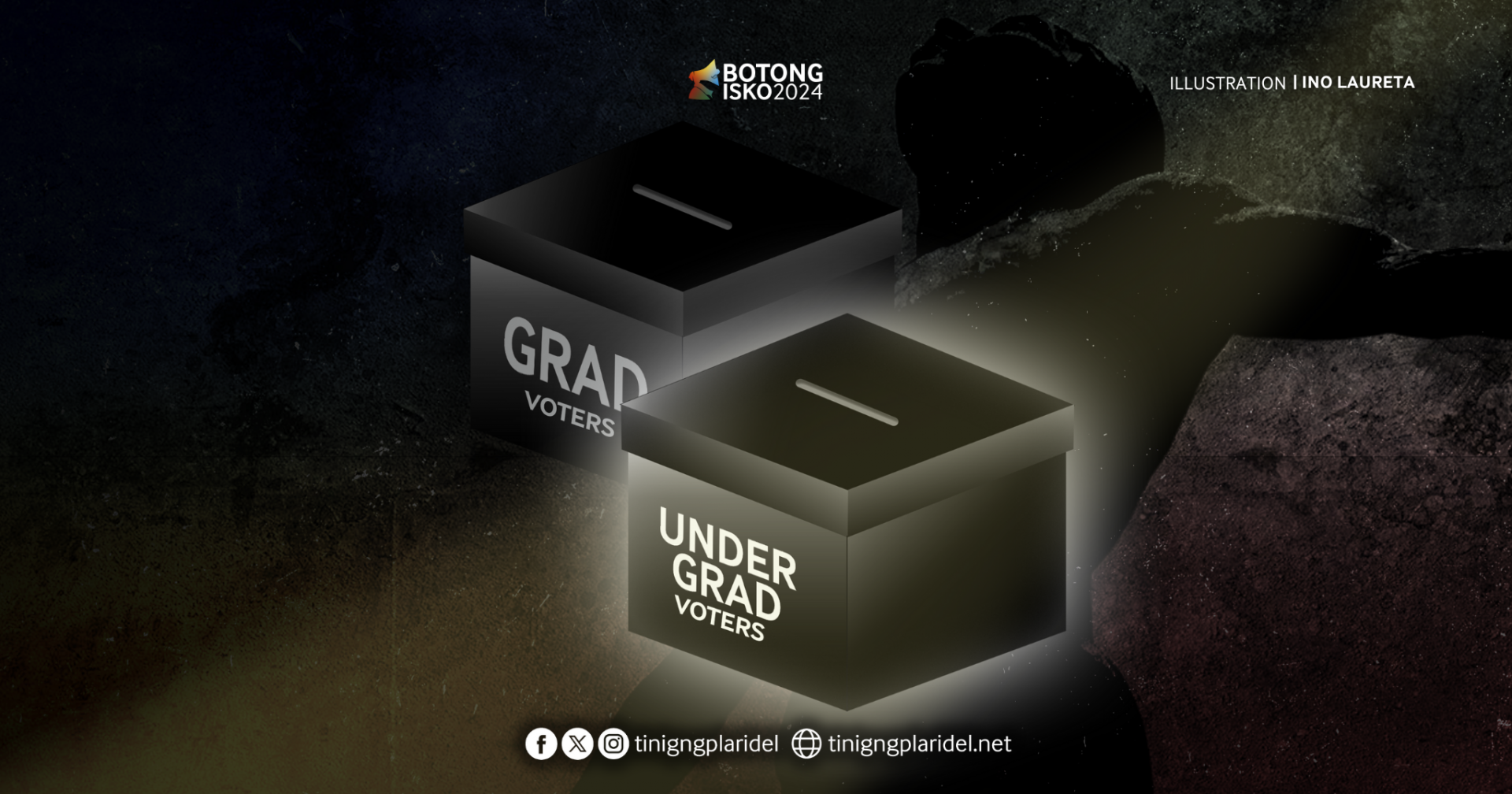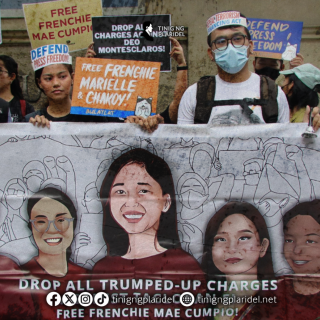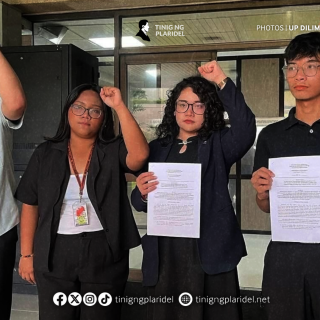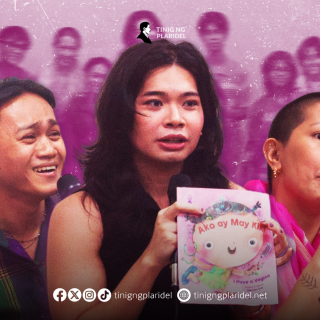Graduate students make up one-third of the student population at the University of the Philippines Diliman (UPD), but they accounted for mere 17% of the votes in the student council elections held last May.
With just 1,325 out of 8,669 graduate students casting ballots, the poor turnout raises concerns over why such a large voting bloc in Diliman remains disengaged from campus politics.
The same elections also posted all-time low voting turnout numbers in Diliman’s, on record, as only 30.8% of students voted in the polls. It also saw abstain votes dominating in all USC races, leaving the Chairperson, Vice Chairperson and 12 councilor seats vacant for the first time since Martial Law.
Read: ‘Abstain vote’ causes stir anew UP Spelex 2024
To fill the vacancies in the USC, the UPD Office of Student Projects and Activities called for a special election this October. However, graduate students simply do not have the luxury of time to attend election activities and gauge the platforms of each candidate, said Brandon de Luna from the College of Mass Communication (CMC).
“‘Yung graduate students, hindi lang kasi sila estudyante eh. They are professionals, some of them are full-time researchers, and others maybe have different interests altogether, so they have less time to engage in campus politics and elections,” said de Luna, who is also an officer of the CMC Graduate Students Association (GSA).
In the last regular election, the CMC Graduate Studies department only recorded a 9.72% turnout, with only 21 out of 216 students casting their votes. On the other hand, nearly a majority of Maskom undergrads flocked to the polls.
“I don’t have the time, we don’t have the time to do this because every hour that we miss is another hour that we could have [done] for our own work or maybe do our thesis or final papers. So I think that is one thing that we have [to] consider also,” said de Luna.
The drastic difference between graduate and undergraduate voter turnout is also present in other colleges.
Among academic units in Diliman, the College of Engineering houses the largest population of graduate students. However, only 2% of eligible engineering graduate voters took part in the elections.
Single-digit turnout among graduate voters was reported last May elections across all colleges in UPD except the School of Economics, College of Social Work and Community Development, School of Library and Information Studies and College of Business Administration.
Turnout has consistently been low in previous elections in colleges that primarily admit graduate students, such as the Asian Center, School of Urban and Regional Planning, School of Archaeology, Technology Management Center (TMC) and Institute of Islamic Studies. The notable exception is the College of Law, which recorded the highest turnout in the 2024 regular polls at 65%.
‘Fading’ Relevance
While de Luna recognizes the importance of student representation, he said some graduate students feel that USC is “irrelevant” to them as most of its services are mostly “tailored” for undergraduate students.
De Luna said that graduate students, at least in Maskom, engage with their local GSA, “Alam nila na may opportunities for GSA to grow. And that is why we are very fortunate na may nagse-step-up for leadership.”
However, not all colleges in UPD have their own GSAs, and de Luna said graduate voters still feel distant toward the USC because of the controversies that emerged in the past elections, as well as the “declining” quality of candidates running in the elections.
“Gone are the days where [UP] ALYANSA, STAND UP and KAISA [UP] were competitive. I was in the generation na, I was active in the campus politics when I was an undergrad. Talagang the debate was rich, it was colorful,” he added.
On top of the platforms and political parties’ principles, De Luna said that each candidate’s characters matter in elections.
“UP students are smart enough to know na, ‘Okay. we know you’re bullshit-ing or hindi ka aligned sa sinasabi mo.’ I think that boils down at how political parties in UP can be accountable in their previous errors or how to say genuinely that ‘we are here to change, and is reflective on what we can do’,” he said.
In 2023, the university-wide political party Student Alliance for the Advancement of Democratic Rights in UP (STAND UP) withdrew from the election after cases of mishandled sexual harassment cases perpetuated by its members surfaced in the Aktibisita forum.
The red banner had no candidate bets for the past three elections to focus on its internal units, members’ formation, and organization, according to their statement released last May.
Meanwhile, the Nagkakaisang Iskolar para sa Pamantasan at Sambayanan (KAISA UP) has not participated in elections since 2021.
The UP Alyansa ng mga Mag-aaral para sa Panlipunang Katwiran at Kaunlaran (UP ALYANSA) is the sole remaining political party with a candidate in the ongoing special election, running for vice chairperson.
The other nine university-wide election candidates are running independently.
“I think it is a wake-up call for campus political parties and in UP at large that we don’t want candidates that just say things out of whim or just say things dahil election na. But we want to see genuine service. We want to see genuine people who are committed beyond party lines,” de Luna said.
‘Tough’ Task
Despite the low engagement of graduate students in campus politics, former USC Chairperson Shine Reyes said they tried to include their demands in the council’s campaigns.
During Reyes’ term, the USC drafted a “graduate student agenda” collated through a series of assemblies with graduate voters. This included relaying to the UP administration the graduate students’ need for a hybrid option in their classes as most lectures happen in the evening as late as 9 p.m.
The USC in the past years also held consultations with graduate students with the help of the League of College Councils, the alliance of local councils in UPD.
Reyes also acknowledged that the UP administration’s projects are primarily catered to undergraduate students, which might also diminish the student participation among graduate students.
“Ine-ensure namin by always including them [graduate students] sa consultations … para ma-ensure na ‘yung initiatives namin ay … hindi lang for undergrads [but] it encompasses ‘yung mga concerns ng mga students natin from graduate students,” Reyes explained.
While some graduate students have their own GSAs, the incoming USC will bear the challenge of representing their needs, especially since no graduate student ran for any university-wide seat in the last two years.
The last graduate student who served in the USC was Anthony Aggabao, former TMC representative to the USC in 2022.
This tests the USC officers, who are mostly composed of undergraduate students, to also fulfill their obligation toward graduate students as part of their constituents.
“[M]ahirap na rin ‘yung … maraming pinagdaaanan ‘yung mga grad students on a normal basis [in] terms sa basic services, and ‘yung mismong academics nila. So parang it’s they [the incoming USC] have to find the way na … makakapag-convince sila, for a lack of a better term, na magbigay ng oras ‘yung mga students para sa kanila,” Reyes added.
Likewise, de Luna said the burden to encourage graduate students like him to engage in campus politics falls on student leaders. As long as there is distrust in the institution, de Luna said that many graduate voters will remain disconnected from the USC.
“If they [graduate students] do not see that the institution is fighting for their interest, advocating for them, but is only there to [serve] their parties, I do not see any merit in supporting something that would invalidate what I personally believe in,” said de Luna. “How can we encourage ‘yung mga estudyante [to participate]? Show the relevancy of our institutions to them.”









